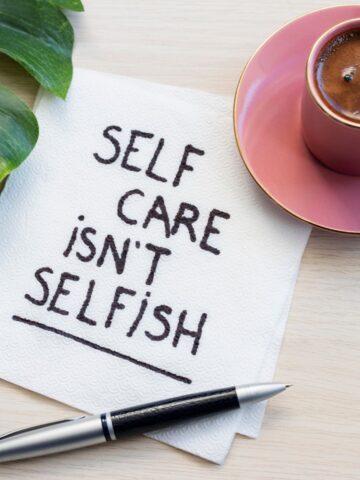Building credit can be a slow process. When you are faced with the task of building credit from scratch, it can seem to take a long time. Have patience, and use these tips to help you get a good start. Using these tips will show you how to build your credit from scratch.
In no time you will find that you have a diverse amount of options to equip yourself with. To get more Budgeting Tips, download your FREE monthly Budget worksheet.
For more Personal Finance Articles and Budgeting Tips Read Here.

Find and Maintain a Stable Job
Perhaps you are already off to a good start, having had a long-term, stable job. If not, it should definitely be one of your main focus in the immediate future.
Secure a job that you can envision yourself at for many years. Stability in a job always looks good as far as credit is concerned.
If you have been working at the same place for many years with a steady incline in regards to your paycheck, you will come across as a stable individual who will be able to make regular payments.
You Should Live within Your Means
One of the best pieces of advice to someone who wants to build credit is to live within your means and not overspend.
It won’t do your credit any good to have a job, bank account and credit card if you are constantly in debt and not paying it off in time. Instead, live frugally and stick within your budget.
It doesn’t have to be difficult to build your credit from scratch. It simply takes a bit of planning and lots of patience. By using these steps, you can easily build credit from scratch and be one step closer to the dreams you have for your future.
Obtain a Bank Account
Obtaining a bank account should also be at the top of your “to do” list. Any bank account is fine. The point is to open one and maintain activity. This will prove that you are able to keep a bank account running, along with its transactions and deposits.
Next, Obtain a Credit Card
If you do not yet have one, obtaining a credit card is a goal you should make. This is an essential way to make your dreams of building your credit come true.
There are many options when you are searching for credit cards. Be sure to do your research and find the credit card that is the right fit for you.
There are many types, from those that are high interest with no fees to those with low interest for individuals who tend to carry a balance, to credit cards that have a reward point system.
There is no “one size fits all” when it comes to credit cards, so research your options and ask friends and family what they love and hate about their own credit cards.
“Personal finance is only 20% head knowledge. It’s 80% behavior!” –
Dave Ramsey
Pay Your Bills and Credit Cards on Time
Once you have your credit card, make it a priority to pay it on time in a monthly fashion. It used to be believed that you should keep a balance on your credit card in order to build credit, but that has now proven to be false.
A better way to build your credit is to pay on time, and in full if possible. This will show that you are a trustworthy individual who can make regular payments on time.
Paying all your bills on time will also help your credit score. Once a bill is 30 days late, they can start reporting it to the credit agencies.
How Do I Check My Credit Score?
You’re entitled to one free copy of your credit report every 12 months from each of the three nationwide credit reporting companies. Order online from annualcreditreport.com, the only authorized website for free credit reports, or call 1-877-322-8228.
At What Age Can You Start Building Credit?
- Starting at Age 16 you can build credit by Having a Job
- Becoming an Authorized User on your parents Credit Cards
- Get a Secured Credit Card
- Get a Credit Building Credit Card

What is a FICO Score?
FICO Scores are the credit scores most lenders use to determine your credit risk. You have FICO Scores from each of the three credit bureaus—Experian, Equifax, and TransUnion. Each score is based on information the credit bureau keeps on file about you.
35 percent of your score comes from your payment history, 30 percent from how much of your available credit you’re using, 15 percent from the length of your credit history, 10 percent from new credit and 10 percent from your credit mix. Scores range from 300 (dismal) to 850 (perfect).
To sum up how to build your credit from scratch, be consistent, set up a budget, pay your bills on time and time itself will work on your behalf. If you have additional questions, leave a comment below or read some of our additional articles.





Leave a Reply